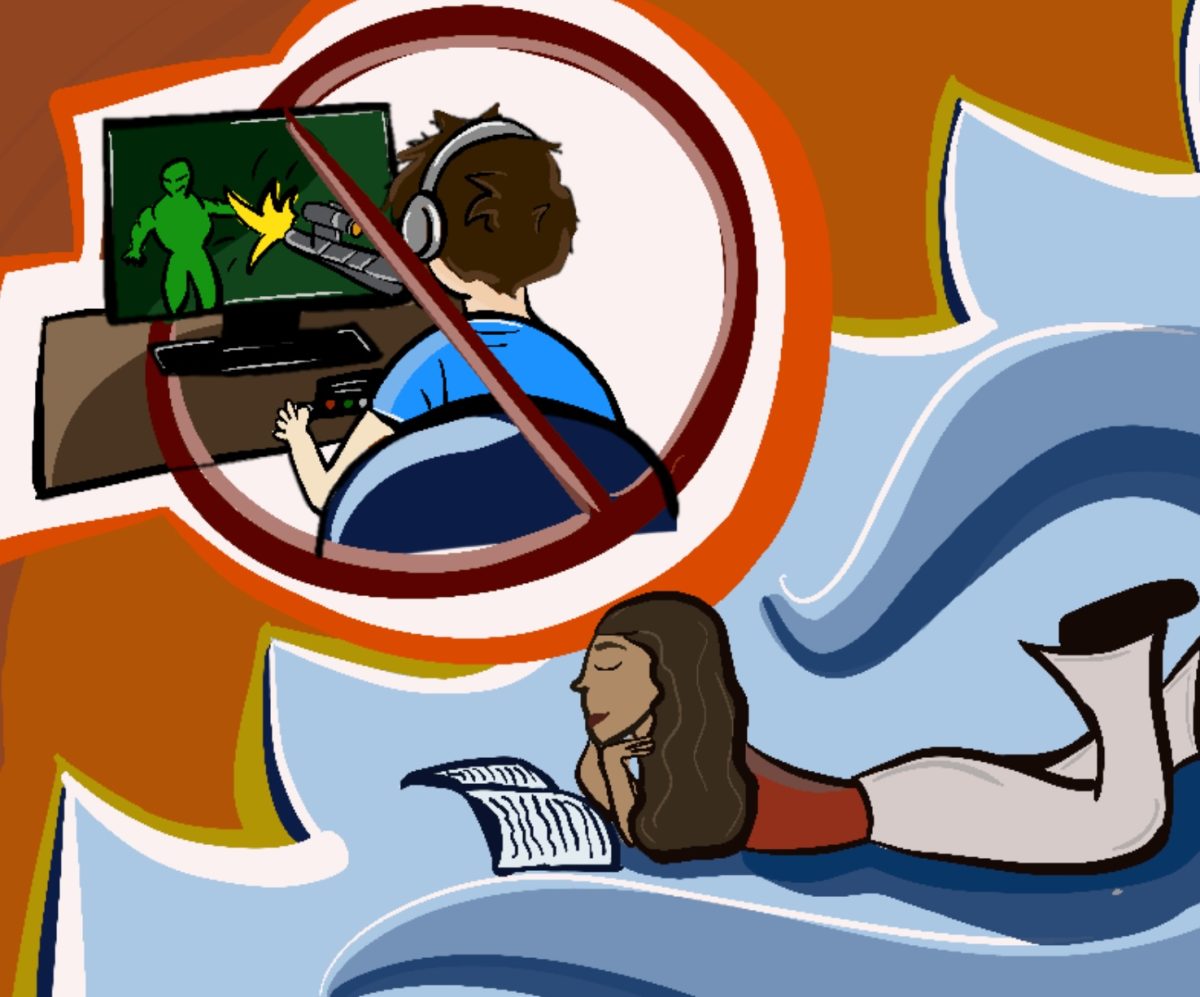Constant connection to devices makes daily life at UT especially stressful for students, but after a long day spent checking emails, writing essays and working on Canvas assignments, the reality is that most of us unwind in front of yet another flashing screen.
While this habit can be counterproductive to reducing students’ stress levels, free time spent watching TV, playing video games or even using social media isn’t always bad. By choosing calming content, like re-runs of a favorite TV show, students’ media consumption can become a stress reliever instead of a stress inducer.
In contrast, so-called “doomscrolling,” consuming fast-paced, negative content online, can contribute to heightened anxiety. Students must be mindful of the media they consume and its role in their day-to-day stress.
Much like a carefully chosen diet impacts physical health, the media we consume influences our mental well-being. Similar to picking a nutritious meal to nourish the body, deliberately choosing calming media can offer a mental respite. Students can feed their brains too much “junk” media, overwhelming themselves with emotionally draining content. Learning to discern between supportive and draining content is a crucial component of digital wellness.
“I (try to be) aware of the emotions that come up when I’m consuming the content,” said early childhood education junior Emmaline Black. “If I’m scrolling, reading or watching something and it is consistently making me feel bad about myself or a lot of negative emotions are coming from that content, then I choose to unfollow that person or not look at it.”
Determining what content is mental health-conscious is a personal decision, and it can vary daily. For example, I accidentally trained myself to fall asleep to true crime podcasts — not exactly the most peaceful or uplifting choice — but lately, I’ve been shifting to watching a light-hearted TV show with friends (namely, “The Marvelous Mrs. Maisel”) or playing a slow-paced video game such as Stardew Valley.
I lean toward content that doesn’t bring up negative emotions like fear or sadness, and I avoid overly fast-paced, attention-grabbing media.
“I also think about my values,” Black said. “If there’s something that isn’t aligned with my values, as a person or as a Christian, then I choose not to listen to that song or watch that show. Also, if there is something that makes me feel uncomfortable, then I don’t force myself to watch it, even if it’s popular.”
It’s not a stretch to assume that young adults could benefit from similar digital mindfulness. Doctors advise that fast-paced, flashy content isn’t supportive of children’s developmental well-being.
James Butler, UT’s Mindfulness Campus Coordinator, helps students incorporate mindful practices into their daily lives. Technology, he said, is a big part of that.
“There’s the option of just taking social media breaks … and just be a little bit more mindful about how we’re consuming content on technology. I’m not gonna sit here and say, ‘Don’t use your phone; don’t use technology,’ because that’s not the real world,” Butler said.
In conjunction with intentional breaks from technology, students can practice discernment in their media consumption. Some resources available for students to learn about mindful use of technology are the Counseling and Mental Health Center’s guide and the Thrive at UT app.
In a world where we are almost always plugged into digital spaces, deliberately selecting calming content can grant us control over our mindsets. At the end of the day, “you are what you eat,” and that goes for our digital diets, too.
Jackson is a Plan II and journalism sophomore from Boerne, Texas.















